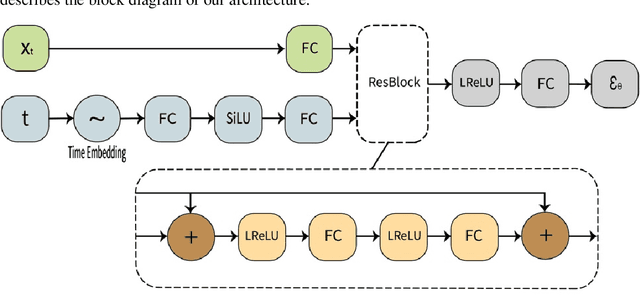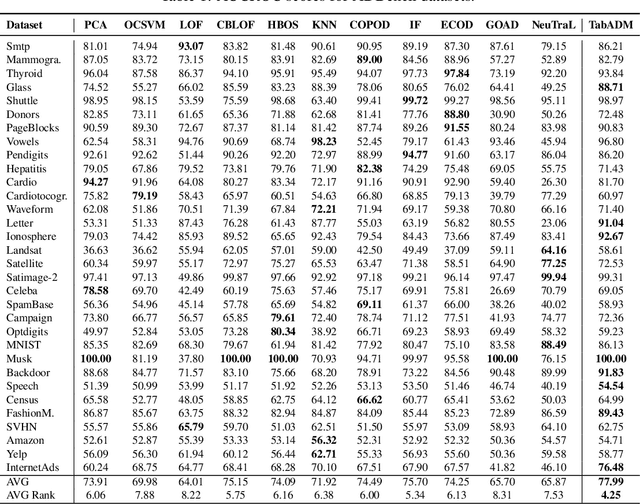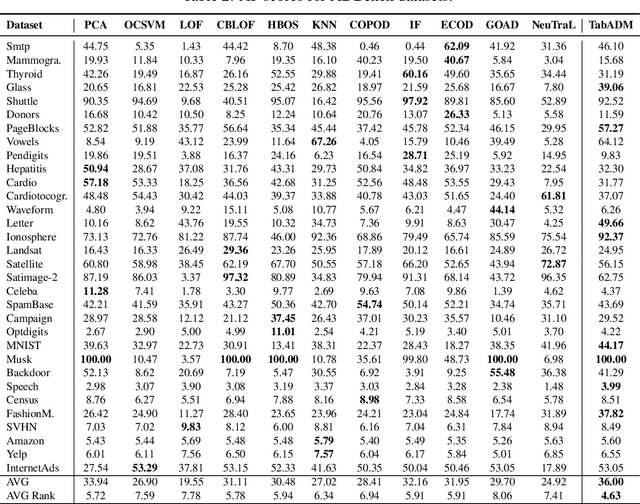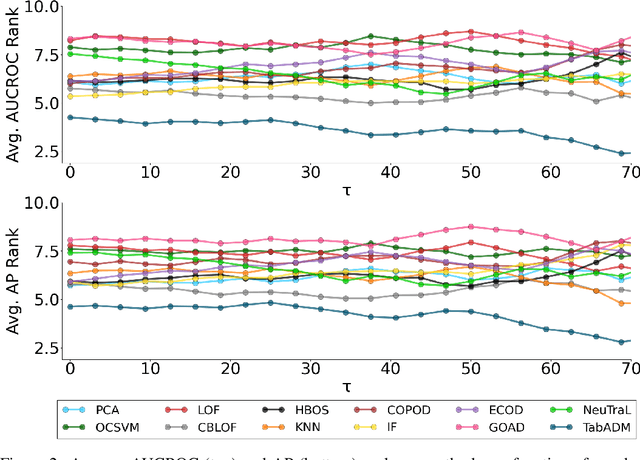Guy Zamberg
TabADM: Unsupervised Tabular Anomaly Detection with Diffusion Models
Jul 23, 2023



Abstract:Tables are an abundant form of data with use cases across all scientific fields. Real-world datasets often contain anomalous samples that can negatively affect downstream analysis. In this work, we only assume access to contaminated data and present a diffusion-based probabilistic model effective for unsupervised anomaly detection. Our model is trained to learn the density of normal samples by utilizing a unique rejection scheme to attenuate the influence of anomalies on the density estimation. At inference, we identify anomalies as samples in low-density regions. We use real data to demonstrate that our method improves detection capabilities over baselines. Furthermore, our method is relatively stable to the dimension of the data and does not require extensive hyperparameter tuning.
 Add to Chrome
Add to Chrome Add to Firefox
Add to Firefox Add to Edge
Add to Edge